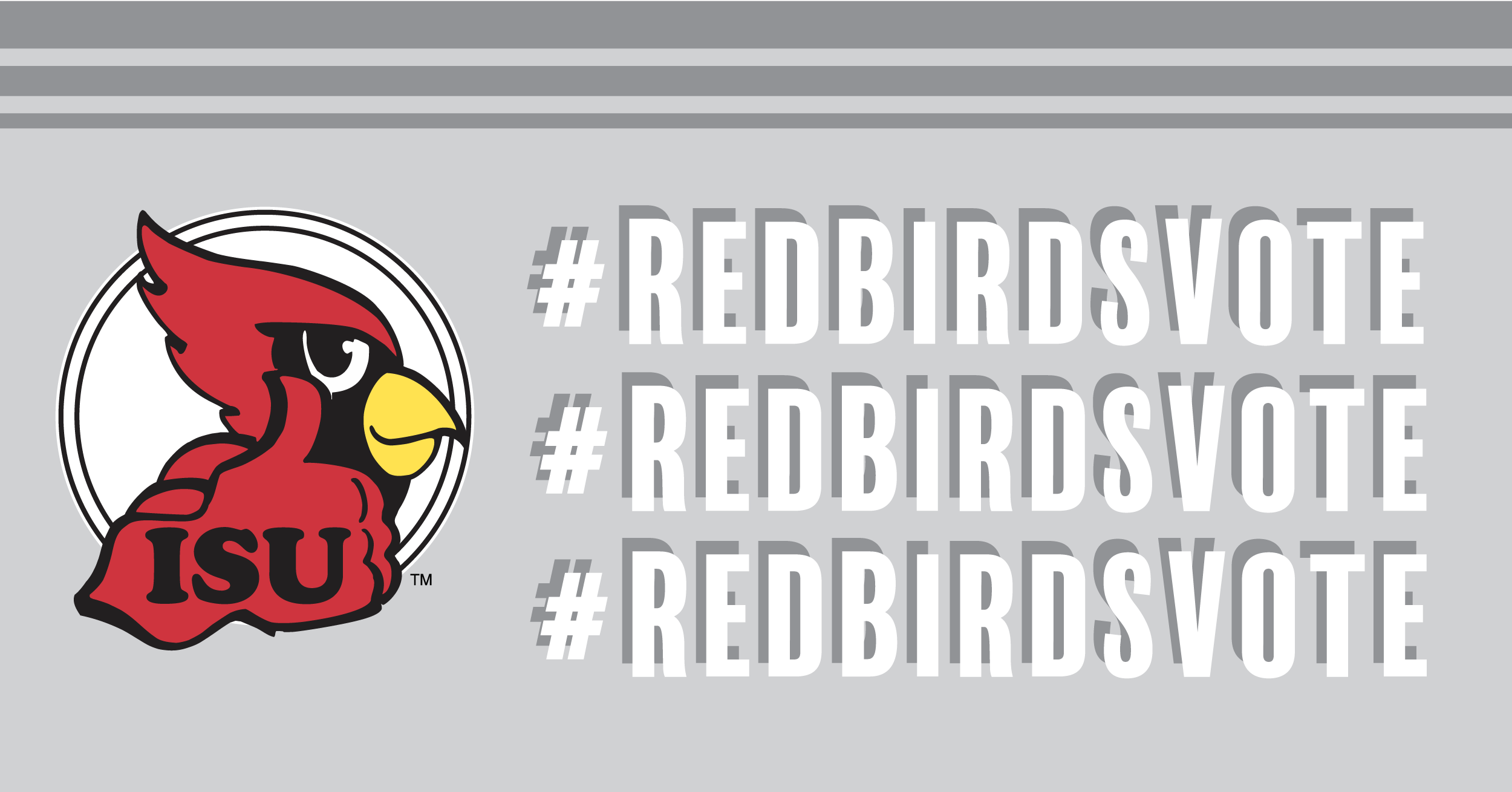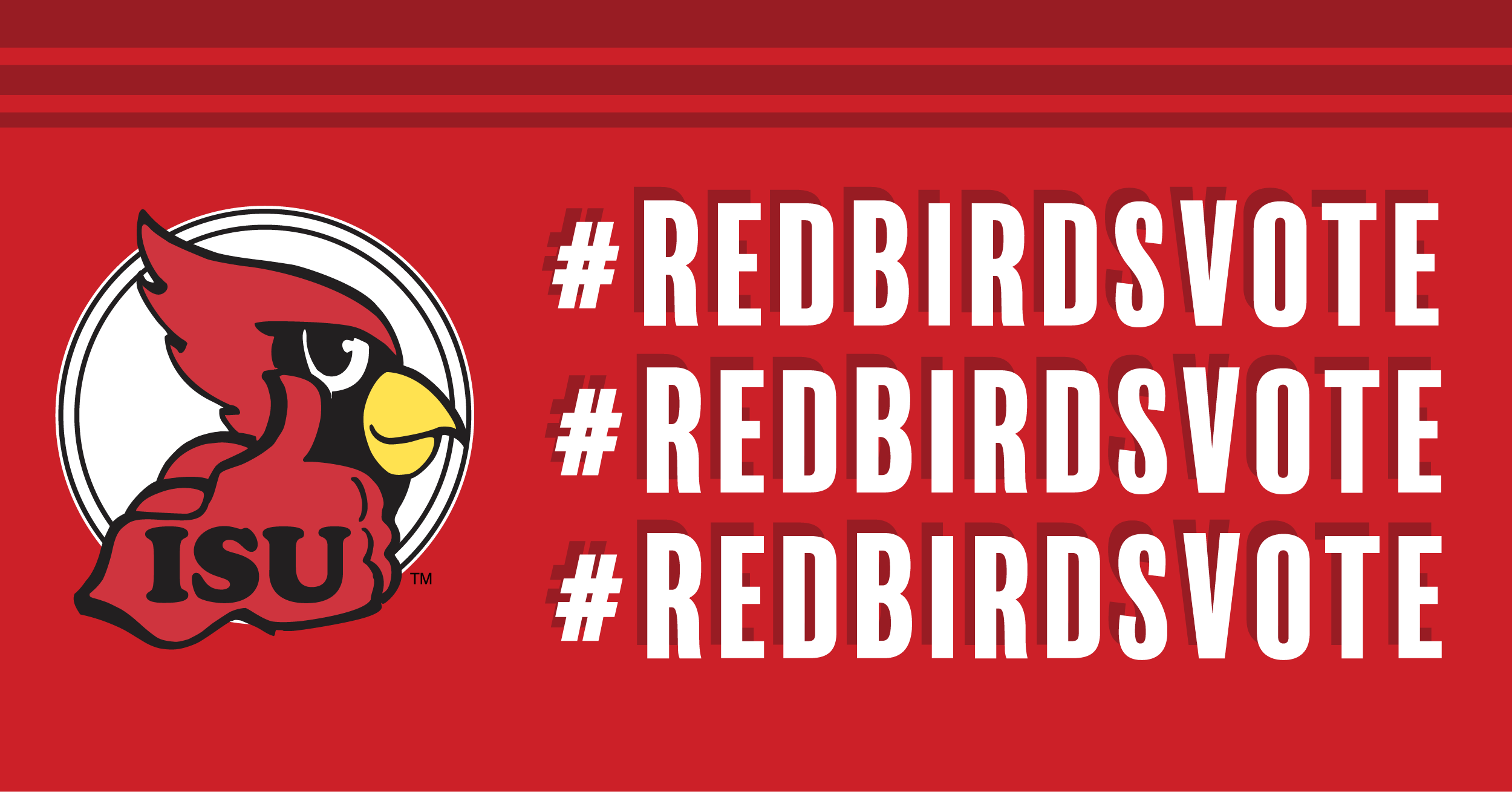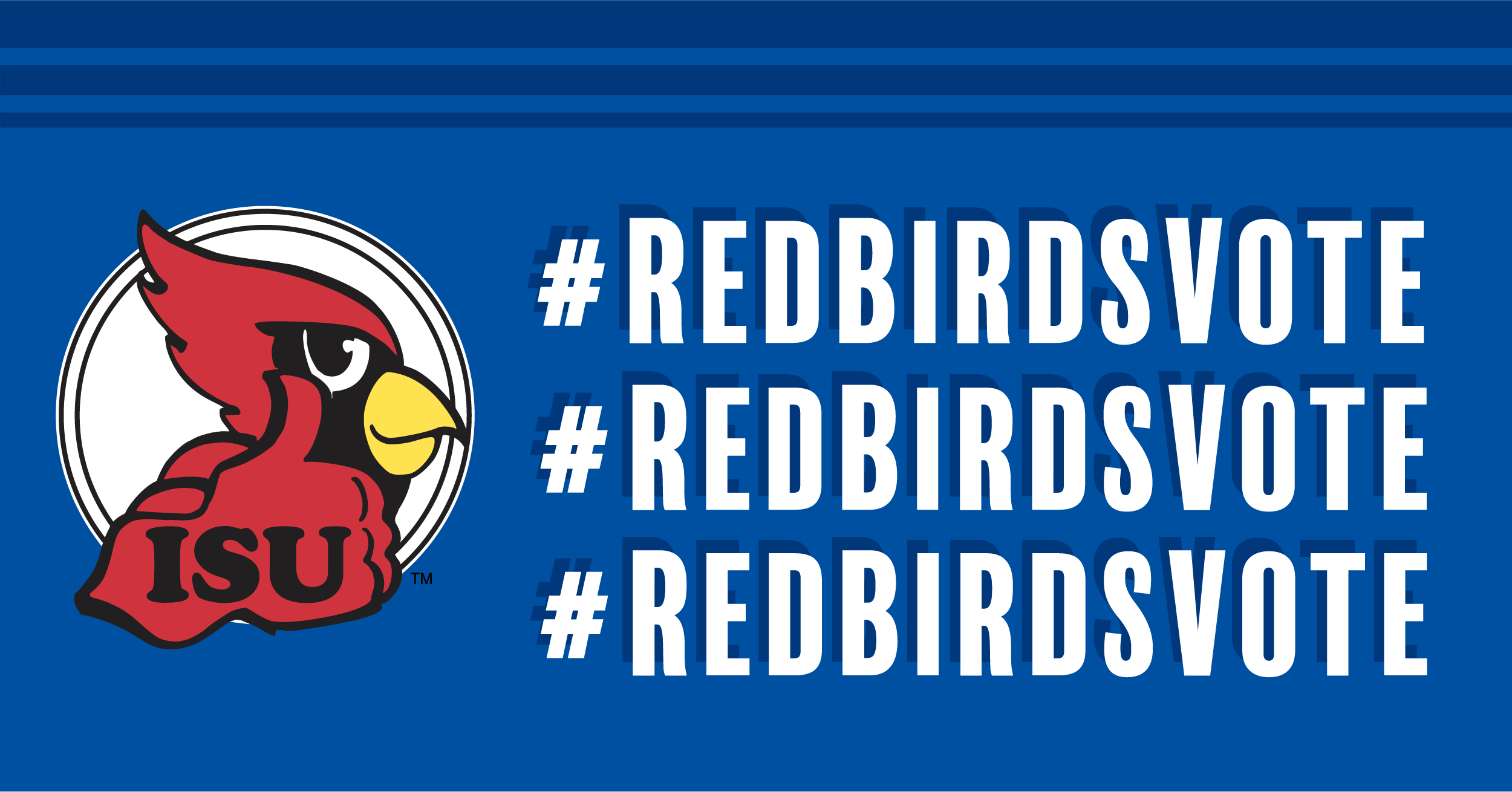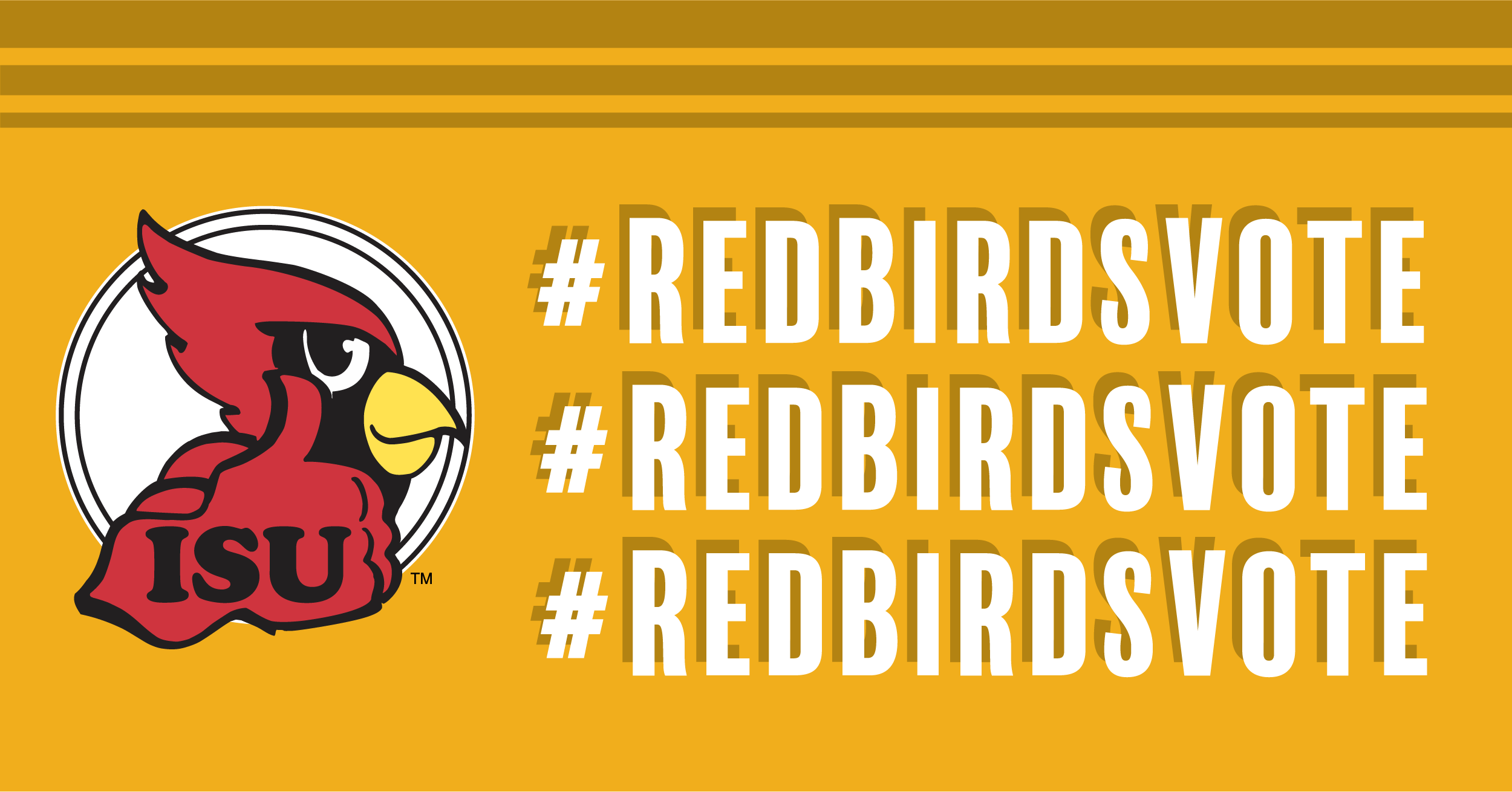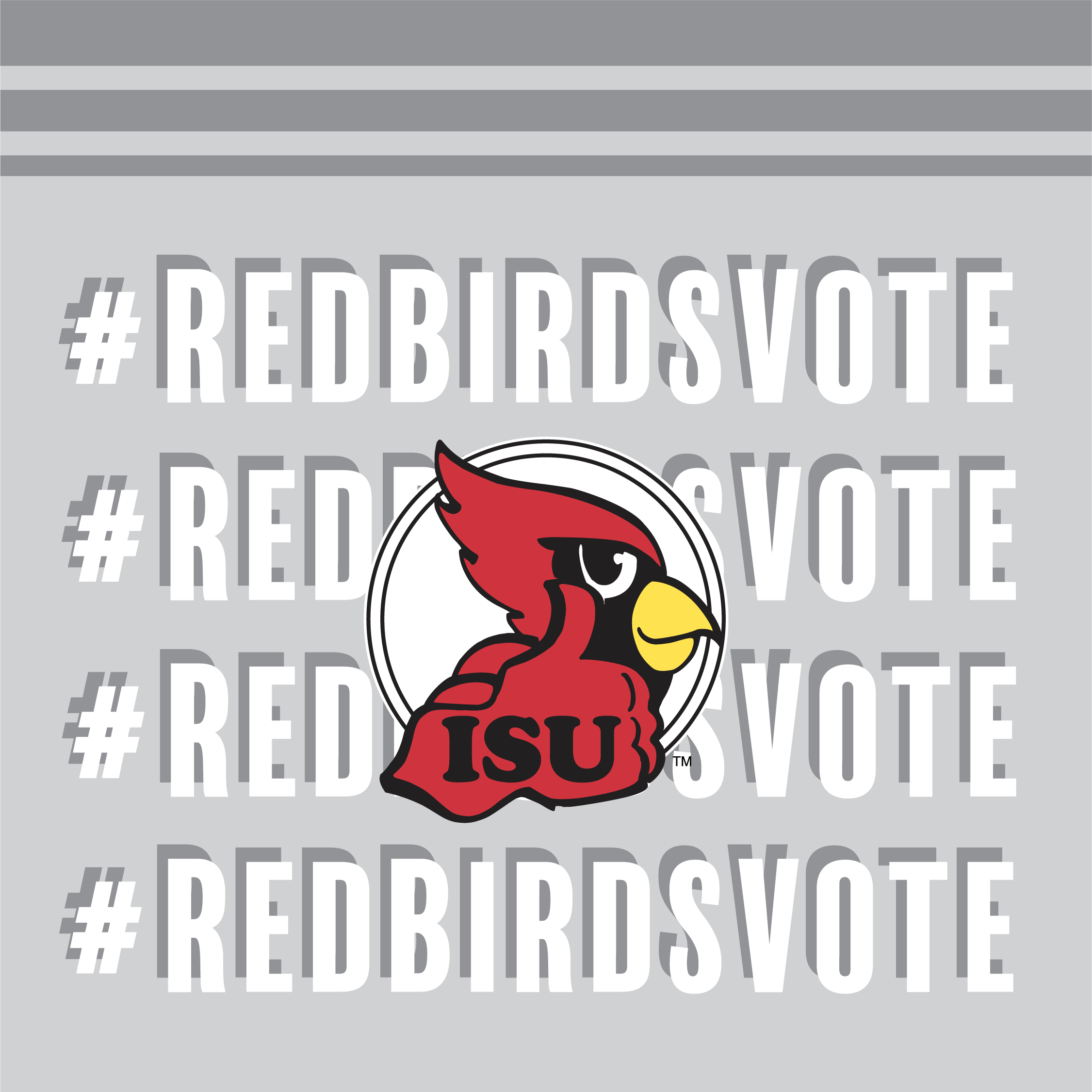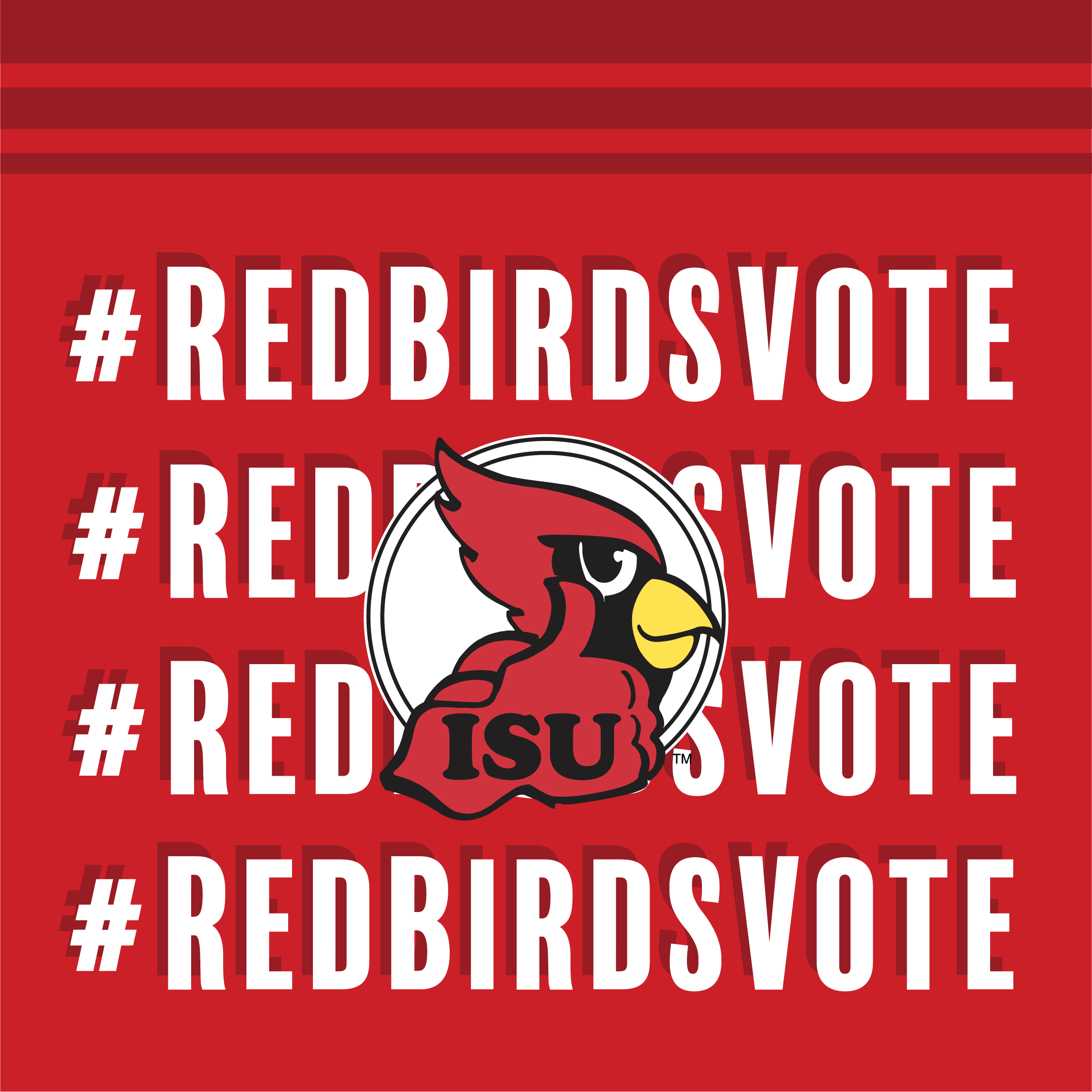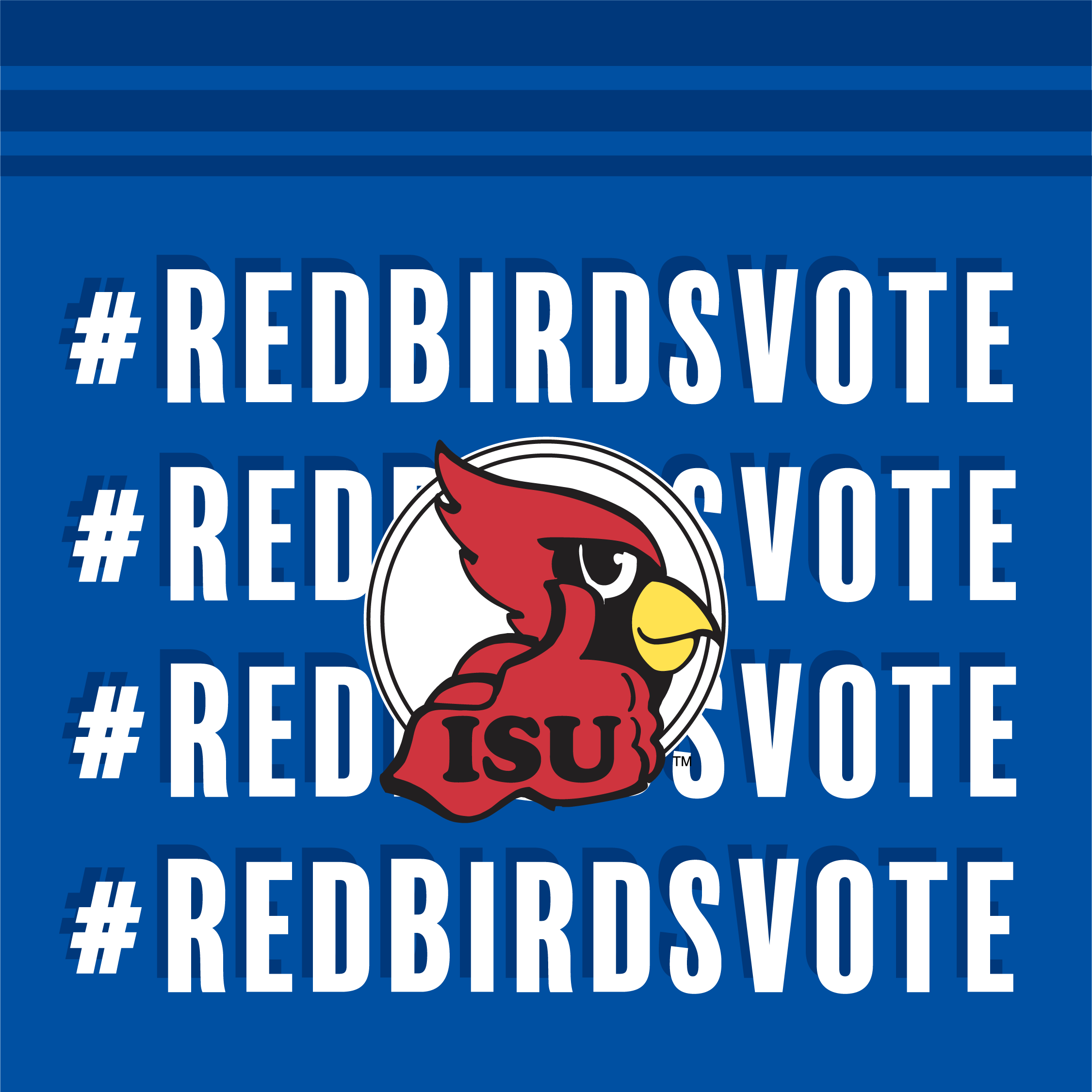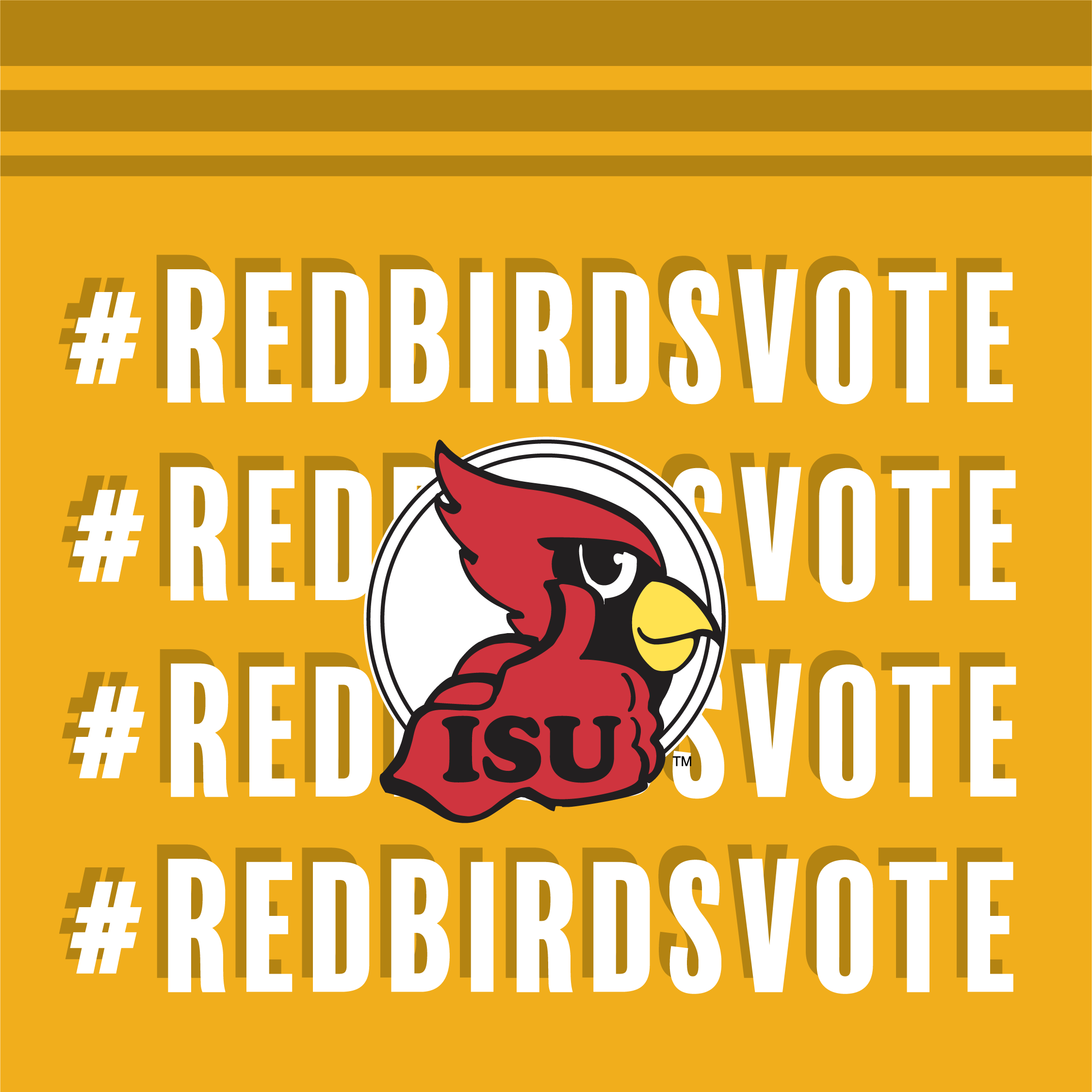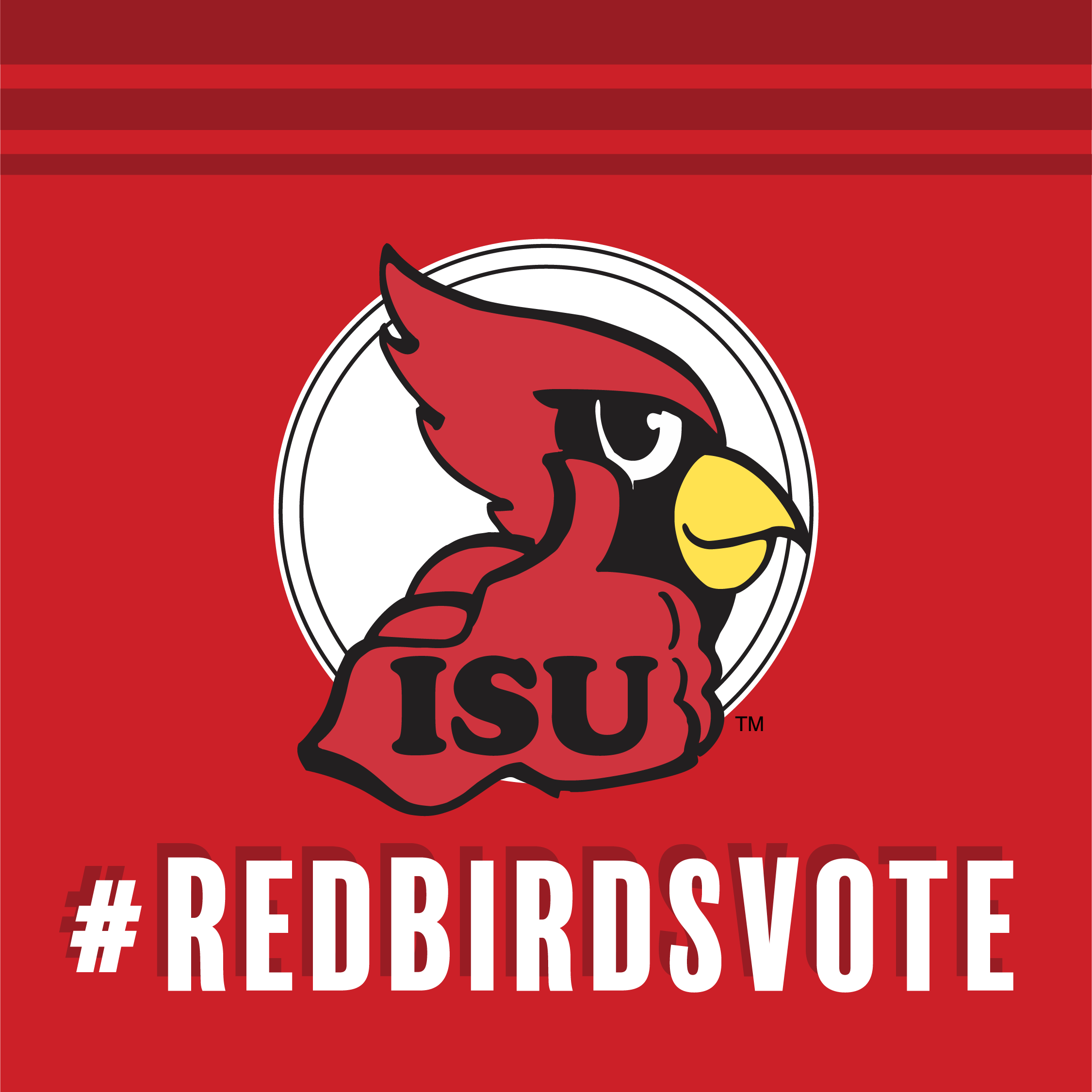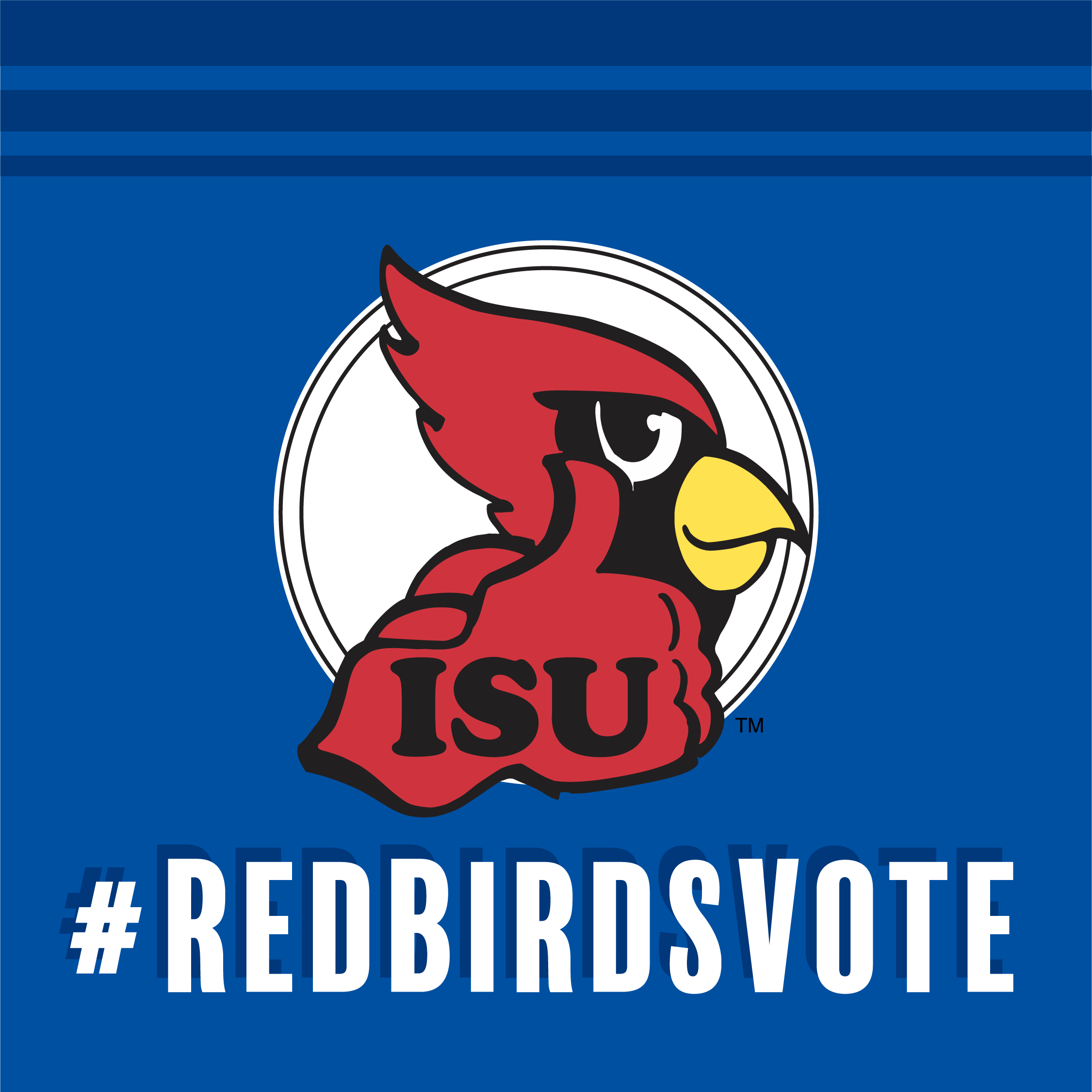Redbird Voter Tool Kit
The following resources are available for all members of the Illinois State community to utilize as they support and encourage election engagement.
Events
For a list of our Election-related and Civic Education and Political Engagement events, please visit the Events page of the Redbird Voter Guide.
Presentations
Would you like someone to come to your meeting or class to talk about voter registration or other election information? Voter Engagement Coalition members and election interns would be happy to speak. Please use our presentation request form and someone will follow up with you.
Post-Election Resources
Find a list of post-election resources on a special page of our Redbird Voter Guide.
Professional Development Opportunities
The Center for Civic Engagement regularly updates this list of current professional development opportunities related to civic education and/or voter engagement. These events are hosted by nonpartisan organizations. Consider subscribing to our listserv to get updates sent directly to your inbox.
The Illinois Civics Hub has resources that focus on lesson planning for students in 6-12th grade, though much of the content may be relevant at the college level as well.
The American Association of State Colleges and Universities (AASCU) offers a variety of workshops with different content focuses which you can explore below.
Strengthening civic connections: Build campus-community ties and integrate voter education in your classroom.
Diagnosing the issue: Explore ways to address political polarization and enhance well-being on campus.
In-Class Learning and Education Resources
Utilize these resources while planning classroom activities/assignments or co-curricular activities.
Faculty Resources
- Election information to share in your syllabus
- All In Nonpartisan Messaging & Tools for Faculty and Academic Affairs
- Civic Engagement and Voting Rights Teacher Scholars resource and the Civic Engagement Resource Database both include sample syllabi and voting related activities
- Check out the 2018, 2020, 2022 NSLVE reports to learn about on-campus voting rates.
- Your Major on the Ballot is a resources from Students Learn Students Vote (SLSV) that helps connect election issues back to students' majors
- Building Resilient and Inclusive Communities of Knowledge (for faculty)
- Facilitating Political Discussions Guide
- Civically Engaged Learning Goals
- Campus Vote Project Resources for Faculty and Administrators
- Faculty Network for Student Voting Rights Academic and Pedagogical Resources
- Voting 101: Election Information for New Voters includes Voting 101 posters in 20 languages
- Fair Election Center - Information on best practices state by state
- Know Your Voting Rights pamphlet from the US Department of Justice
- Student Voting and College Political Campaign-Related Activities brief from the American Council on Education includes information about opportunities, obligations and permissible and non-permissible activities
- Civic Learning Resources for those teaching in K-12
In-Class Resources and Activities
- Make a class announcement about important election information.
- Guide To Informed Voting
- Detecting Disinformation
- Elected Official Letter Writing
- Discussion Questions
- How do local, state, or national policies affect the field of (insert discipline)?
- How do local, state, or national policies affect the work of our RSO?
- How do local, state, or national policies affect me?
- Why is voting important (to me)?
Post-Election Resources
Find post-election related resources on another page of the Redbird Voter Guide.
Incentivization
According to Federal Law (18 U.S.C. §597. Expenditures to influence voting) it is illegal to incentivize voting. It may seem innocent to offer food, swag items, or extra credit to incentivize voting or voter registration but it is not allowed and can be a punishable offence. If you do decide to hold a voter registration drive or march to the polls type of event, you must offer any available items to anyone and everyone in attendance without requiring that they take any action. Any perception that you are required to do something to receive the item could be considered a violation of this law. Similarly, it is not permissable to attempt to influence or incentivize voting for or against any particular candidate or issue. For more information you can visit this webpage.
Videos and Webinars
- How to Vote
- Civic Education to Sustain U.S. Democracy (Webinar)
- Conceptual Foundations of Free Speech and Academic Freedom with PEN America (Webinar)
- Free Speech in Class and Beyond with Mr. Jeremy Knee, Deputy General Counsel at Utah Valley University
- The First Amendment in the Academy with Dr. Manuel Rupe, Senior Associate Dean, Administrative and Legal Affairs of the College of Medicine and CMU Health at Central Michigan University
- Does One Vote Even Matter (Video)
- Why You Should Vote (Video)
- Why Vote? (Video)
- Voter Turnout (Video)
Student Group and RSO Resources
- Make an announcement about important election information.
- Request a presentation for your RSO to hear about the upcoming election.
- Host a Deliberative Dialogue to discuss the issue you and your membership care about most.
- Attend a Normal Town Council meeting to hear about what is happening in your community.
- Take this Political Typology Quiz to see which political group is your best match.
- Building Inclusive and Resilient Community of Knowledge (for students)
- Check out this alphabetical list of U.S. Political Parties and Organizations.
- Write letters to your elected officials about the issues you care about most. Reach out to the Center for Civic Engagement for additional resources and planning support
Marketing Materials
Use these social media graphics and template posts to promote important election information.
Social Media Template Posts
Template social media posts to promote voter engagement
